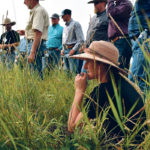Some join these types of programs for the premium prices, while others do so to improve consumer confidence
Canadian consumers have myriad choices when it comes to quality beef. Among those choices is product from certified grass-fed programs that have an audited process guaranteeing the beef comes from cattle raised in a specific way. Several Alberta cattle producers have chosen an Oregon-based certifier as a way to provide consumers with information about their […] Read moreStories by Barb Glen
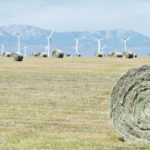
Forage quality tough on nutrition
Production of quality beef starts at an early age for calves. Adequate nutrition from birth — and even before birth — is vital to production of beef that will yield well and meet end-user requirements. Given the recent growing year, the high quality forage beneficial to lactating cows, growing calves and replacement heifers is likely […] Read more
Carcass composting called efficient disposal
Requirements include a front-end loader, old straw bales, manure or wood chips, a thermometer and a calendar
FORT MACLEOD, Alta. — Producers are often surprised to find no evidence at all of dead livestock once the remains are successfully composted. Bones and even teeth are obliterated through a combination of bacterial and fungal action encouraged by heat and moisture. It’s a reasonably efficient way to deal with dead animals as opposed to […] Read moreNutrition may boost genetics
Providing optimum nutrition and a low-stress environment to pregnant cows can benefit the future generations of those cows. “We’re starting to learn that that environment … that animal is in can actually have some permanent and lasting changes on the genetic code itself,” said Katie Wood, assistant professor in ruminant nutrition at the University of […] Read more
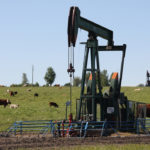
Alta. farmers feel heat as oil sector struggles
Landowners are urged to think twice if oil and gas companies ask them to accept reduced lease payments
The failure earlier this month of another Alberta-based energy company was no surprise to many landowners from whom Houston Oil and Gas Ltd. has leased sites. It is, however, an addition to the problem of gas and oil site abandonment and failure of energy companies to meet their obligations to Alberta’s farmers and ranchers. Houston […] Read more
Proposal sees abandoned oil wells going solar
The plan started as a small pilot project in Alberta but has caught the attention of the provincial energy regulator
A plan is taking shape to erect small solar installations on the sites of Alberta’s abandoned oil and gas wells. If successful, it could prove to be a classic case of making a silk purse from a sow’s ear, since myriad oil and gas company bankruptcies have resulted in the abandonment of thousands of wells, […] Read more
Cattle producers ask for transport rule delay
FORT MACLEOD, Alta. — Aspects of the new federal livestock transportation regulations, scheduled to take effect Feb. 20, continue to concern the cattle industry. The Canadian Cattlemen’s Association has asked Agriculture Canada to delay enforcement of the new rules for two years so the results of livestock transport research still underway can be incorporated into […] Read more
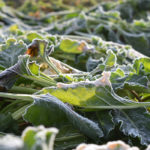
Almost half of Alberta’s sugar beet crop is lost
About 45 percent of Alberta’s 2019 sugar beet crop will not be harvested. It means about 12,600 of the 28,000 contracted acres are lost to producers and lost to Lantic Sugar, the processor that operates the sugar factory in Taber, Alta. “It’s hard to take,” said Alberta Sugar Beet Growers President Arnie Bergen-Henengouwen. “It’s been […] Read more
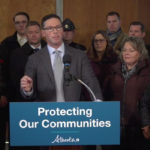
Alberta introduces measures against rural crime
Rural crime is a real concern for Alberta Environment Minister Jason Nixon. “Each Sunday night I get in a car and I drive from my remote farm west of Sundre 300 kilometres to Edmonton. … And each night that I go to bed in my condo in Edmonton, I think is tonight the night that […] Read more
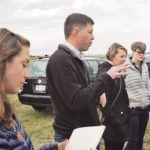
How artists interpret ag data
Art can take many forms. So can agricultural research. Would collaboration between the two prove useful? That was a core question posed in a project involving Agriculture Canada researchers and talented artists in a project organized through the University of Lethbridge. The answer? Science can inform art and art can inform science. Proof of that […] Read more


